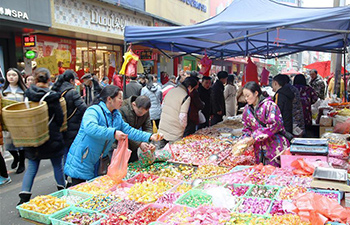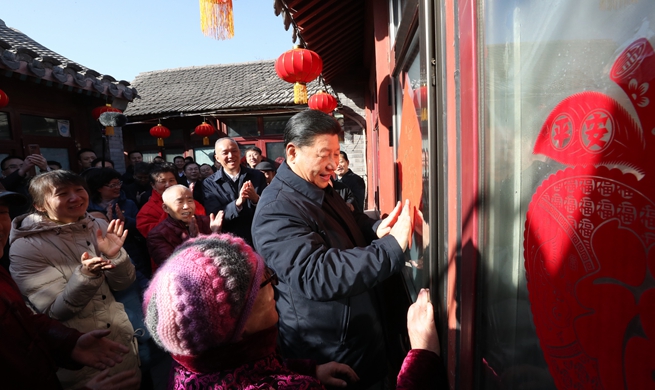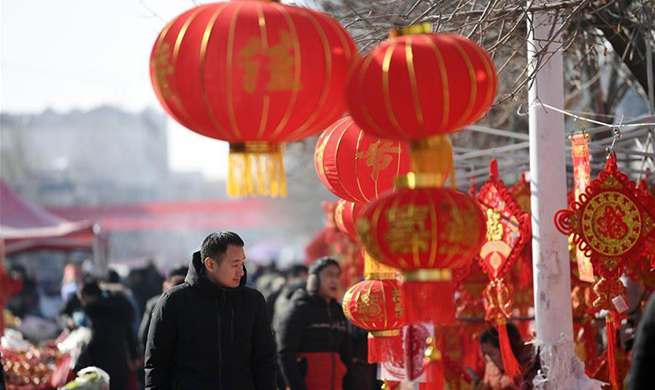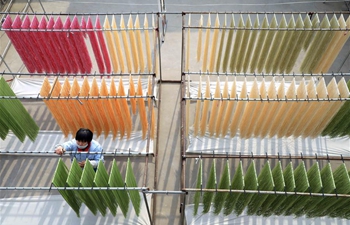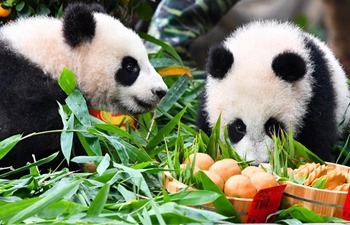SEOUL, Feb. 1 (Xinhua) -- South Korea's headline inflation fell below 1 percent for the first time in one year on cheap global crude oil, a government report showed Friday.
The consumer price index stood at 104.24 in January, up 0.8 percent from the same month of last year, according to Statistics Korea. The consumer price inflation slid below 1 percent for the first time since January last year.
The headline inflation, which hovered above 2 percent for three months through November, declined to 1.3 percent in December last year.
It was far below the Bank of Korea (BOK)'s inflation target of 2 percent. Pressure was forecast to reduce on the BOK to raise its benchmark interest rate, which was hiked to 1.75 percent in November.
The BOK's policy rate continued to stay below the U.S. Federal Reserve's benchmark interest rate, which was raised to a range of 2.25-2.50 percent in December.
The low inflation came as oil product price tumbled on the lower global crude oil price. Price for oil products sank 9.7 percent in January from a year ago, with prices for gasoline and diesel sliding 12.7 percent and 7 percent each.
Price for industrial products, including oil product, dipped 0.7 percent in January from a year earlier, pulling down the overall headline inflation by 0.22 percentage points.
However, price for agricultural, livestock and fishery products gained 2.5 percent last month, pulling up the consumer price inflation by 0.19 percentage points.
Agricultural product price advanced 5.3 percent, but livestock product price slumped 1.5 percent.
Services price advanced 1.4 percent in January, raising the overall inflation by 0.77 percentage points. Public services cost shed 0.3 percent, but private services price increased 2.5 percent.
The growth rate of eating-out expense hovered above 3 percent for 10 months in a row on higher shop rent.
The so-called livelihood cost index, which reflects prices for major daily necessities, rose 0.4 percent in January, the lowest increase since August 2016.
The fresh food price index, which gauges fresh fruit, vegetable, fish and shellfish, gained 1.2 percent last month.
Core price index, which excludes volatile agricultural and oil products, added 1.2 percent, while the OECD-method core price index excluding food and energy costs was up 1 percent.
Ahead of the Lunar New Year's Day holiday, which lasts from Feb. 4 to Feb. 6 this year, major farm goods price showed a stable picture amid the government's efforts to stabilize such costs.
Beef and pork prices dipped 0.9 percent and 3.4 percent, respectively, last month, while those for Chinese cabbage and white radish retreated 14 percent and 11.9 percent each.
During the traditional holiday in the beginning of the year, South Koreans gather in their hometowns to meet their relatives and share traditional food.
